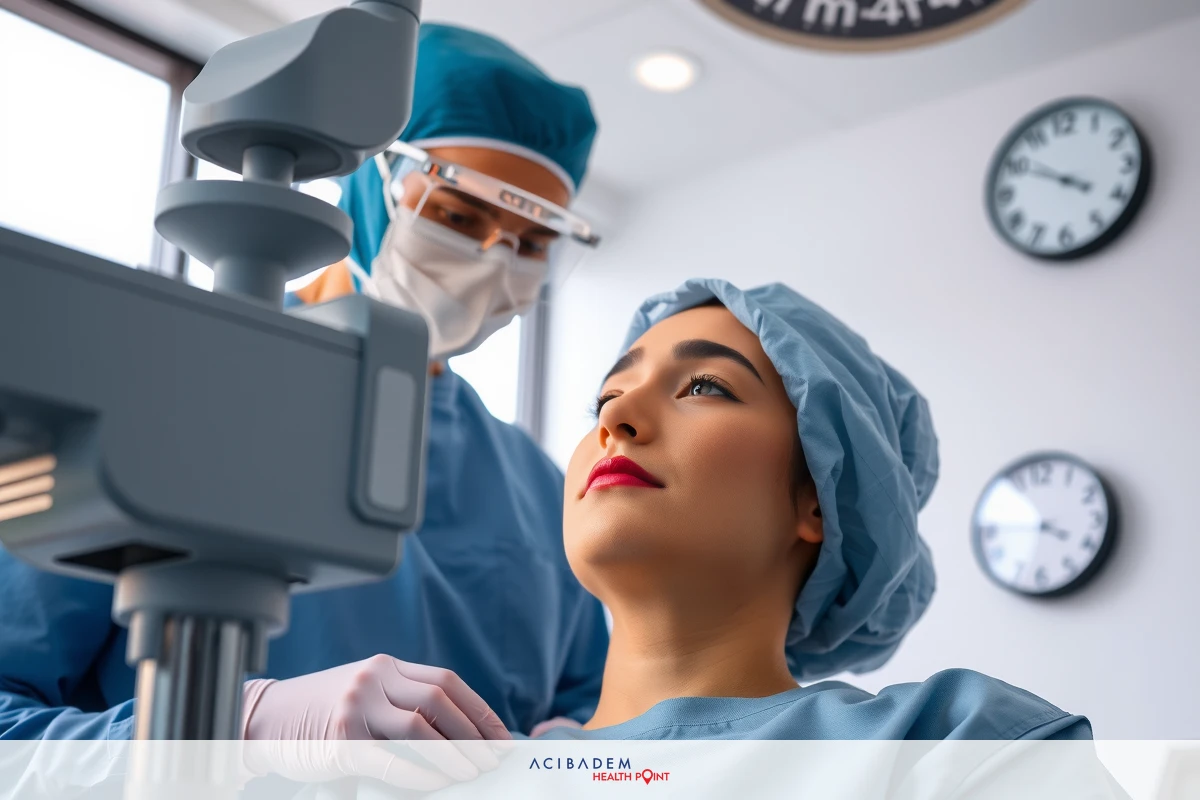What is the Best Eye Surgery Laser?
What is the Best Eye Surgery Laser? Lasers have revolutionized eye surgery, offering precision and effectiveness that were unimaginable a few decades ago. With an array of laser technologies available today, it’s natural to wonder which one is the best.
As you delve into this topic, remember that ‘best’ can be subjective. The ideal choice depends on various factors including your specific condition, lifestyle needs, surgeon’s expertise and more. This article will guide you through different types of lasers used in eye surgery while highlighting their unique benefits.
Different Types of Eye Surgery Lasers
In the exciting and ever-evolving world of eye surgery, lasers are at the forefront. This is due to their precision in correcting vision imperfections such as nearsightedness, farsightedness, astigmatism, and more. But when we talk about “lasers,” it’s important to note that there are different types each with its unique benefits.
The first type you might come across is Excimer lasers. They’ve been around since the 1980s and continue to be popular for a reason – they’re extremely effective! These lasers work by removing microscopic layers of tissue from the cornea, reshaping it so light entering the eye can be properly focused on the retina. The result? A significantly improved vision!
Another laser that has gained popularity over recent years is Femtosecond lasers. Unlike Excimer lasers which remove tissue, Femtosecond ones create precise incisions in the cornea during procedures like LASIK or cataract surgery. The advantage here lies in their accuracy while minimizing potential risks associated with manual cuts.
Moving forward let’s look into another remarkable laser type – YAG (Yttrium Aluminum Garnet) lasers.These are typically used post-cataract surgery if a patient experiences clouding of lens capsule (known as posterior capsule opacification). A quick procedure known as YAG capsulotomy uses this laser to create an opening in the clouded capsule restoring clear vision.
Lasers have indeed brought about a revolution in how we address various eye conditions offering not just effective but also minimally invasive treatment options. However remember choosing ‘the best’ among these depends on several factors including your specific needs under guidance from your ophthalmologist.
Choosing the Right Laser for Your Eye Surgery
Choosing the right laser for your eye surgery is a decision that shouldn’t be taken lightly. After all, it’s about one of our most vital senses – vision! The key here isn’t just about finding ‘the best’ but rather what’s best suited to your unique needs and circumstances.
The first step in this process involves understanding your specific condition. Are you dealing with nearsightedness or farsightedness? Do you have astigmatism or cataracts? Each condition has its own set of recommended procedures which utilize certain types of lasers. For instance, Excimer lasers are often used for LASIK, a procedure designed to correct refractive errors like myopia (nearsightedness), hypermetropia (farsightedness) and astigmatism.
Next, consider consulting multiple ophthalmologists before making a decision. They can provide valuable insights on different laser options based on their experience and expertise. It’s also crucial to ensure they’re well-versed with the latest technology as advancements continue to emerge rapidly in this field.
Another important factor is recovery time post-surgery which varies depending upon both the type of laser used and surgical procedure chosen. Some patients may prefer quicker recovery times over other benefits such as long-term effectiveness or fewer side effects.

Lastly, don’t forget lifestyle considerations such as work requirements or leisure activities that could impact your choice of treatment method. These might include whether you frequently engage in contact sports (which might affect suitability for procedures like LASIK) or if you have certain occupational hazards affecting eye health.
Remember choosing ‘the best’ laser isn’t about picking the most advanced or expensive option available but rather what aligns perfectly with individual needs ensuring optimal results post-procedure.
Recovery and Results
Laser eye surgery has opened up new possibilities for those looking to correct vision impairments. However, understanding the recovery process and what results to expect is just as important as choosing the right laser and procedure.
Following any type of eye surgery, it’s normal to experience some discomfort or mild pain alongside blurry vision. These symptoms generally subside within a few days post-operation. Depending on your procedure, you may be advised by your surgeon to take several days off work or other activities while your eyes heal.
One crucial part of recovery involves protecting your eyes from potential irritants like dust or bright light that might cause discomfort. It’s also recommended not to indulge in strenuous physical activity immediately after the operation since this could potentially harm the healing process. Your doctor will provide specific instructions tailored according to your individual needs so make sure you follow them strictly!
Most patients notice an immediate improvement in their vision following laser eye surgery although complete stabilization can take a few weeks even months in some cases. Regular post-operative check-ups are essential during this time period allowing doctors to monitor healing progress ensuring everything is going as expected.
Results vary based on factors such as age, health conditions, severity of visual impairment before surgery among others but most patients report significant improvements in their quality of life post-surgery thanks largely due improved vision capabilities without reliance on glasses or contact lenses!
However remember every individual’s journey towards achieving ‘perfect’ sight may differ depending upon numerous factors including how well one adheres to given recovery guidelines ensuring best possible outcome from their chosen procedure!
Frequently Asked Questions
What is the best laser for eye surgery?
The 'best' laser depends on a variety of factors including individual's specific condition, lifestyle needs and surgeon’s expertise. There are various types such as Excimer, Femtosecond and YAG lasers each with its unique benefits used in different procedures.
How long does it take to recover from laser eye surgery?
Recovery times vary depending upon both the type of laser used and surgical procedure chosen. While most patients notice an immediate improvement in their vision, complete stabilization can take a few weeks or even months.
Are there any risks associated with laser eye surgery?
As with any medical procedure, there are potential risks involved which your surgeon should discuss with you before making decision. These might include dry eyes, infection or glare among others though advancements in technology have greatly minimized these possibilities.
Can everyone undergo laser eye surgery?
Not everyone is a suitable candidate for every kind of laser eye surgery. Factors such as age, health conditions and severity of visual impairment play a crucial role in determining eligibility. It's important to consult multiple ophthalmologists before making a decision.
Please note that these answers are intended for informational purposes only and do not constitute medical advice.








